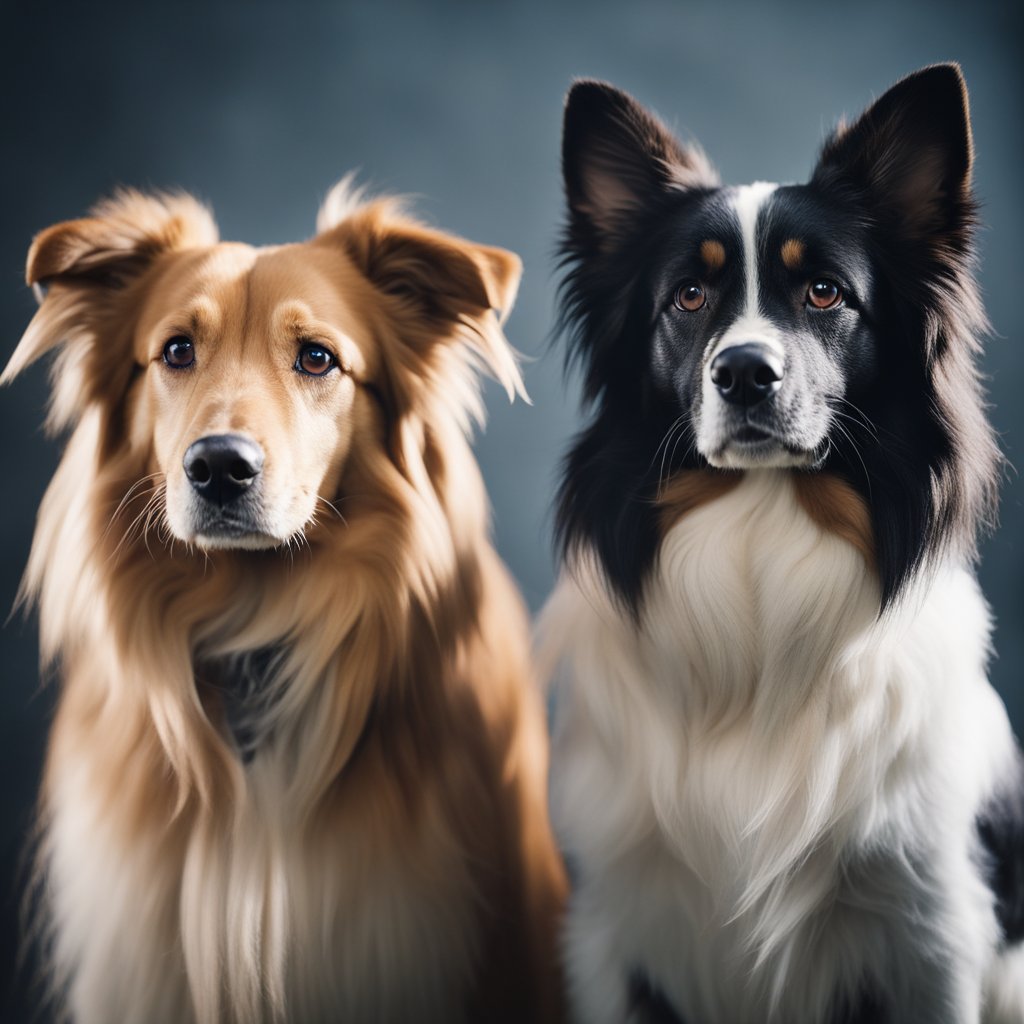Long Haired Dog vs Short Haired Dog: Is There a Difference?
If you’re considering getting a dog, you might be wondering whether there’s a difference between long-haired and short-haired breeds. While the length of a dog’s fur might not seem like a big deal, it can actually have a significant impact on your lifestyle and the amount of care your dog needs. In this article, we’ll explore the differences between long-haired and short-haired dogs and what you should consider when deciding which type of dog is right for you.
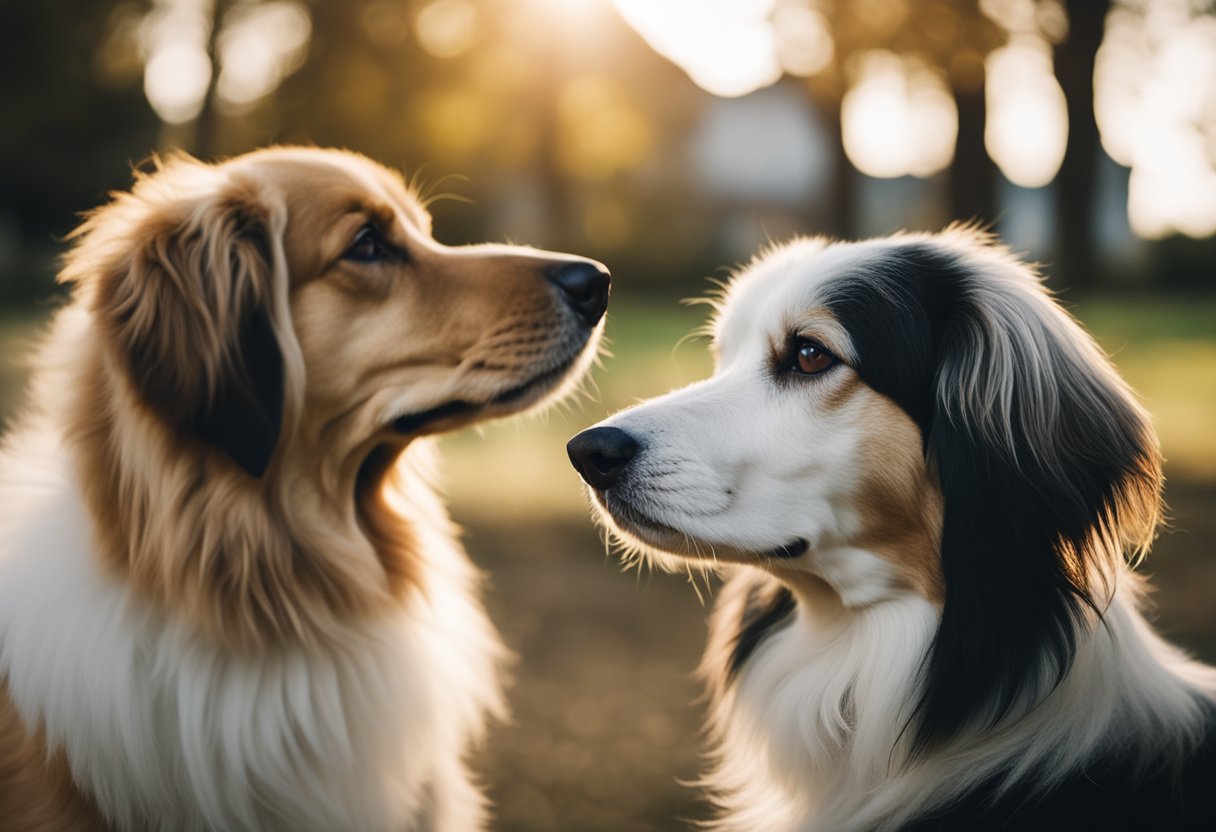
Comparing Long Haired and Short Haired Dogs Long-haired dogs are exactly what they sound like – they have long, flowing fur that can be quite beautiful. Some examples of long-haired breeds include the Afghan Hound, the Yorkshire Terrier, and the Shih Tzu. Short-haired dogs, on the other hand, have fur that’s much shorter and often coarser. Breeds like the Boxer, the Beagle, and the Dalmatian are all examples of short-haired dogs.
Impact on Lifestyle and Dog Ownership The length of a dog’s fur can have a significant impact on your lifestyle and the amount of care your dog needs. Long-haired dogs require more grooming than short-haired dogs, as their fur is more prone to matting and tangling. They’ll need to be brushed regularly to keep their fur looking and feeling healthy. Short-haired dogs, on the other hand, require less grooming, but they can shed more than long-haired dogs. This can be an issue if you have allergies or don’t want to spend a lot of time cleaning up dog hair.
Comparing Long Haired and Short Haired Dogs
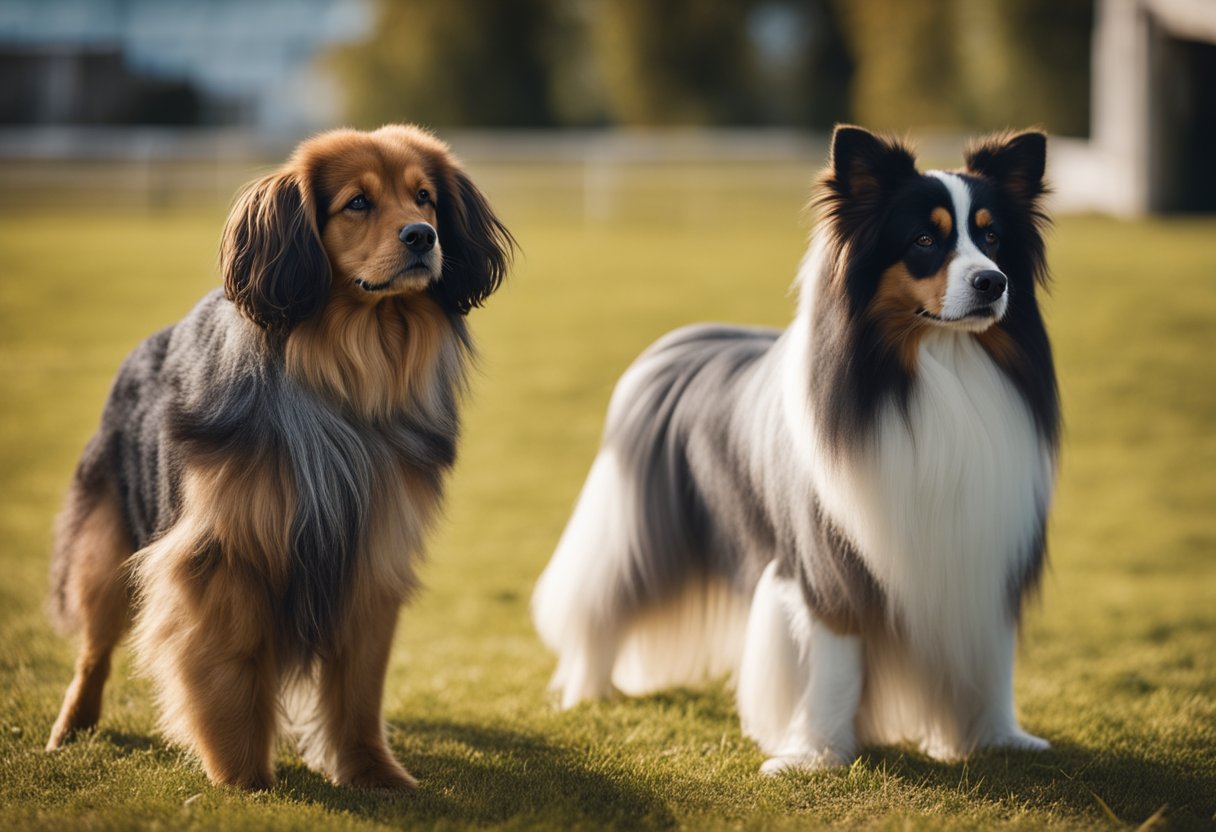
When it comes to choosing a dog, one of the first decisions you’ll need to make is whether you want a long haired or short haired breed. While the decision may come down to personal preference, there are some important differences to consider between the two.
Genetic Differences
Long haired and short haired dogs are the same breed, but they have different genetic traits that affect their appearance and temperament. For example, long haired dogs may have a more luxurious and regal appearance, while short haired dogs may have a more practical and low-maintenance coat. Additionally, long haired dogs may be more prone to certain health issues such as matting and tangling, while short haired dogs may be more prone to skin irritation.
Maintenance Requirements
One of the biggest differences between long haired and short haired dogs is their maintenance requirements. Long haired dogs require more grooming than short haired dogs to prevent matting and tangling. This can be time-consuming and may require professional grooming services. On the other hand, short haired dogs require less grooming and may only need occasional brushing to remove loose hair.
Health Considerations
While both long haired and short haired dogs can be healthy and happy pets, there are some health considerations to keep in mind. Long haired dogs may be more prone to skin issues, such as hot spots and infections, due to their thicker coat. Short haired dogs may be more prone to sunburn and skin cancer due to their lack of fur protection. Additionally, some breeds may be more prone to certain health issues, such as hip dysplasia in German Shepherds.
In conclusion, when choosing between a long haired and short haired dog, it’s important to consider the genetic differences, maintenance requirements, and health considerations of each breed. While both types of dogs can make great pets, it’s important to choose a breed that fits your lifestyle and preferences.
Impact on Lifestyle and Dog Ownership

When deciding between a long-haired and short-haired dog, it’s important to consider the impact on your lifestyle and dog ownership experience. Here are some factors to keep in mind:
Grooming and Care
One of the most significant differences between long-haired and short-haired dogs is the amount of grooming and care required. Long-haired dogs, such as the long-haired German Shepherd, require more frequent brushing and trimming to prevent matting and tangling. On the other hand, short-haired dogs, such as the short-haired German Shepherd, have a more low-maintenance coat and require less grooming.
Exercise Needs
Another factor to consider is the exercise needs of your dog. Both long-haired and short-haired dogs require regular exercise to maintain their health and well-being. However, long-haired dogs may be more sensitive to extreme temperatures, so it’s important to take this into account when planning outdoor activities. Short-haired dogs, on the other hand, may be more comfortable in warmer temperatures, making them a better fit for hot climates.
Suitability for Different Climates
In addition to exercise needs, climate is another important consideration when choosing between a long-haired and short-haired dog. Long-haired dogs may be better suited for colder climates, as their thicker coat provides more insulation and protection from the elements. Short-haired dogs, on the other hand, may be more comfortable in warmer climates, as their coat allows for better heat dissipation.
Overall, the decision between a long-haired and short-haired dog ultimately depends on your personal preferences and lifestyle factors. By considering the grooming and care requirements, exercise needs, and suitability for different climates, you can make an informed decision that will ensure a happy and healthy life for you and your furry friend.
Resources
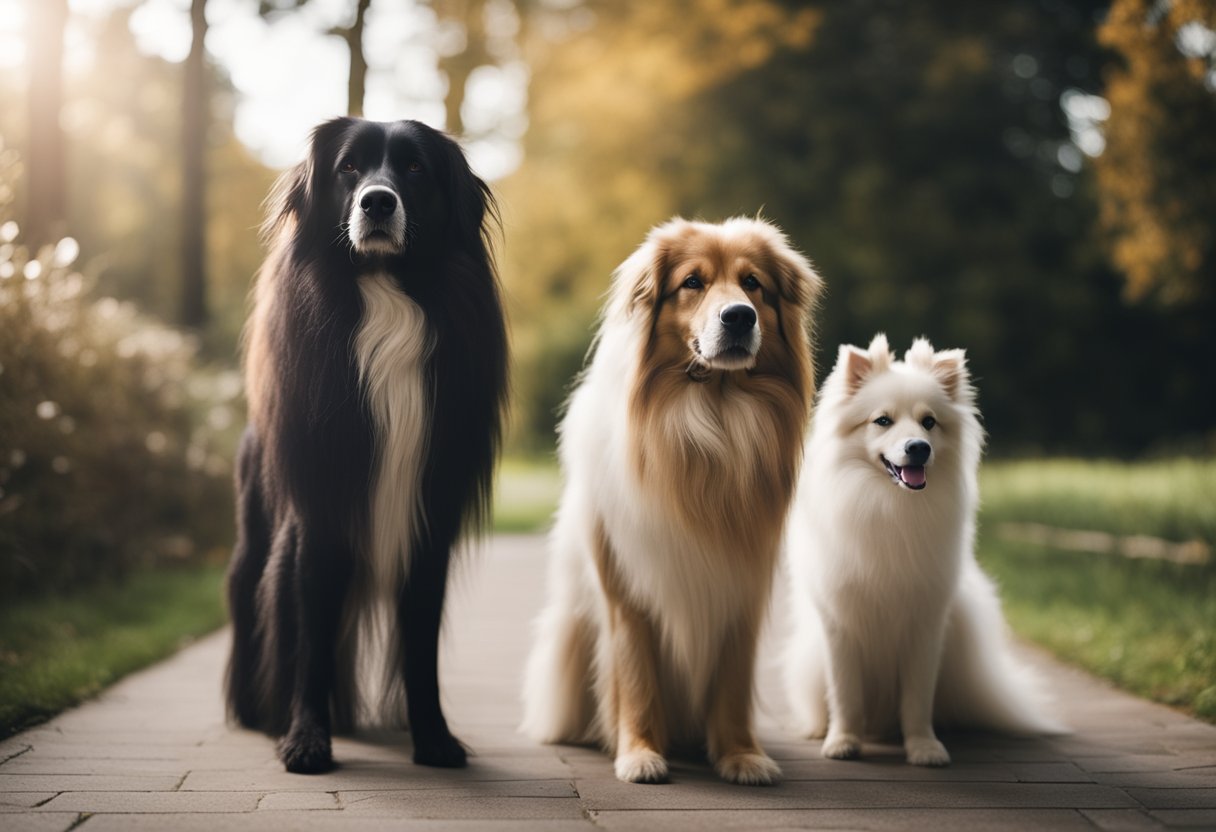
When it comes to choosing between a long haired dog and a short haired dog, it’s important to consider the differences between the two. Here are some resources to help you make an informed decision:
Grooming
One of the biggest differences between long haired and short haired dogs is the amount of grooming required. Long haired dogs are more prone to matting and tangling, so they require more frequent brushing and grooming. On the other hand, short haired dogs require less grooming but still benefit from regular brushing to maintain a healthy coat.
For more information on grooming long haired and short haired dogs, check out this article from Likeable Pets.
Shedding
Another factor to consider is shedding. Long haired dogs tend to shed more than short haired dogs, which can be a concern for people with allergies or those who prefer a cleaner home. However, some short haired breeds can also shed quite a bit, so it’s important to research the specific breed you’re interested in.
To learn more about shedding in long haired and short haired dogs, visit this resource from Vet Explains Pets.
Appearance
Of course, the appearance of a dog is also an important consideration. Long haired dogs often have a more luxurious, flowing coat that can be quite eye-catching. Short haired dogs, on the other hand, tend to have a sleeker appearance that some people find more appealing.
To see some examples of long haired and short haired dogs and compare their appearance, check out this article from New Dog Tips.
By considering these factors and doing your research, you can make an informed decision about whether a long haired or short haired dog is right for you.
Conclusion
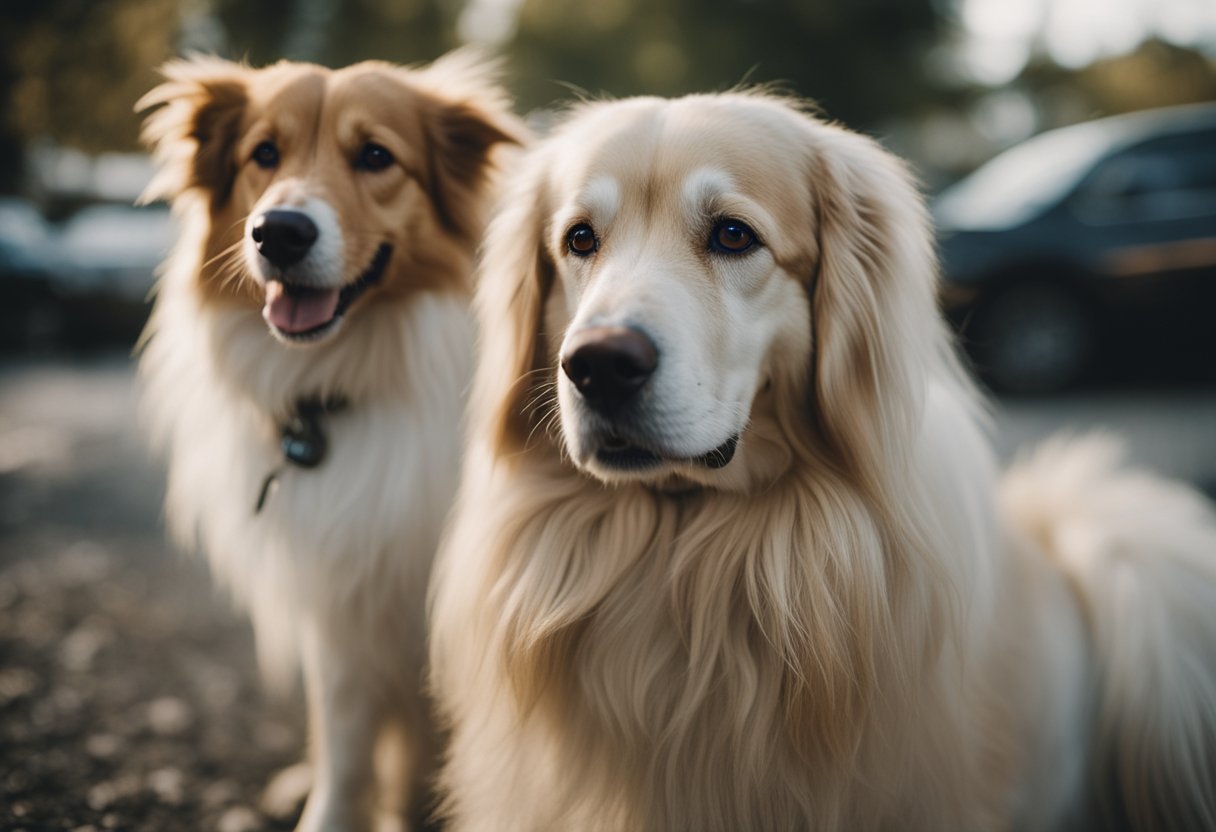
In summary, long haired dogs and short haired dogs have their own unique characteristics and traits. While long haired dogs require more grooming and are more prone to matting and tangled hair, they can also be more laid-back and easygoing. On the other hand, short haired dogs are generally easier to maintain and can be more energetic and playful.
When choosing between a long haired dog and a short haired dog, it is important to consider your lifestyle and preferences. If you have more time to dedicate to grooming and prefer a dog that is more relaxed, a long haired dog may be the better choice for you. If you are looking for a low-maintenance dog that is more active and playful, a short haired dog may be a better fit.
Ultimately, the decision between a long haired dog and a short haired dog comes down to personal preference and lifestyle. Both types of dogs can make great companions and bring joy to your life.
Frequently Asked Questions
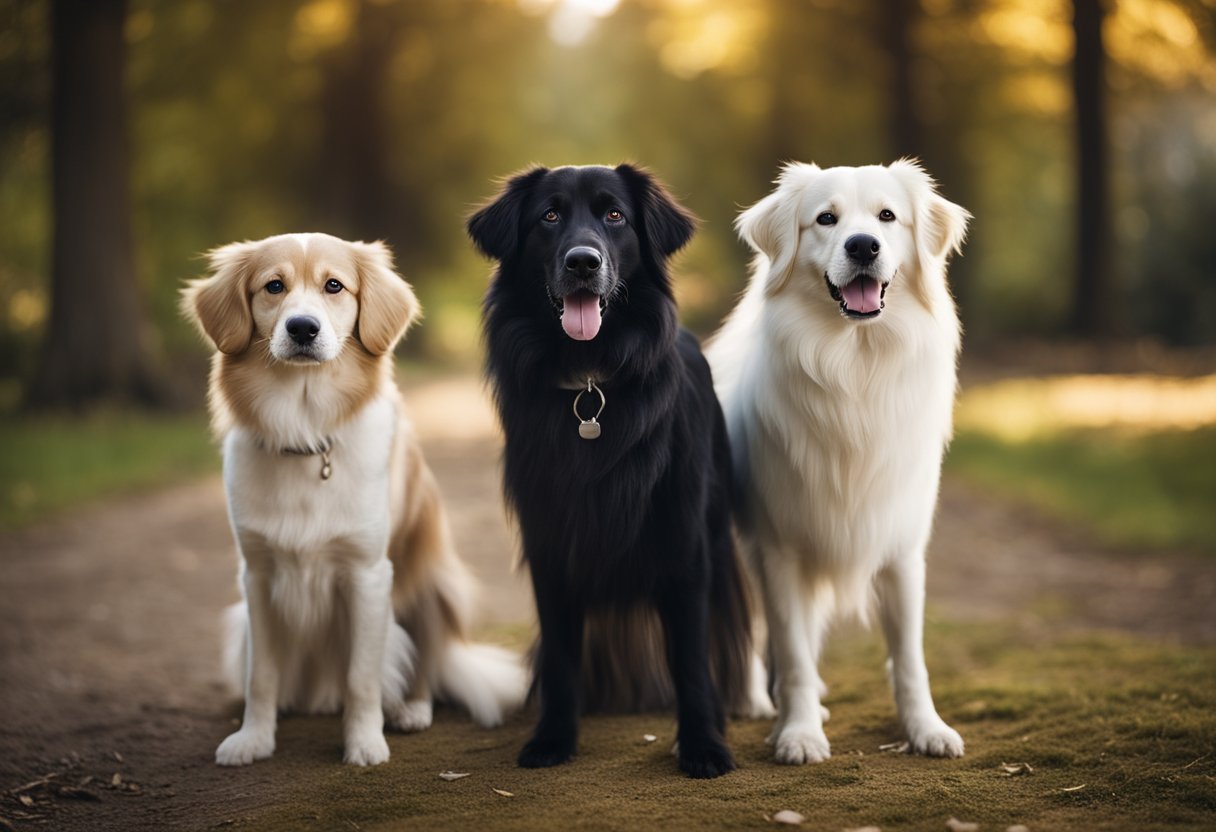
What are the differences in grooming requirements between long-haired and short-haired dogs?
Long-haired dogs require more grooming than short-haired dogs. Their long hair can become tangled and matted if not brushed regularly. Short-haired dogs, on the other hand, require less grooming, but still need to be brushed to remove loose hair and keep their coat shiny.
How can you determine the type of coat a puppy will have?
The type of coat a puppy will have is determined by genetics. If both parents have long hair, the puppy is more likely to have long hair as well. If both parents have short hair, the puppy is more likely to have short hair. However, there is always a chance that a puppy may have a different type of coat than its parents.
Are there any significant differences in shedding between long-haired and short-haired dogs?
Long-haired dogs tend to shed more than short-haired dogs, but this can vary depending on the breed. Both types of dogs shed their hair regularly, so it’s important to brush them regularly to remove loose hair and prevent matting.
What are some examples of dog breeds with long hair versus short hair?
Some examples of long-haired dog breeds include the Afghan Hound, Shih Tzu, and Yorkshire Terrier. Some examples of short-haired dog breeds include the Beagle, Boxer, and Dalmatian.
Can the length of a dog’s hair affect allergy sufferers differently?
Yes, the length of a dog’s hair can affect allergy sufferers differently. While all dogs produce allergens, long-haired dogs may produce more allergens because they shed more. However, some people may be more allergic to short-haired dogs because their dander is smaller and can become airborne more easily.
What are the pros and cons of having a dog with a shorter coat compared to a long coat?
The pros of having a dog with a shorter coat include less grooming, less shedding, and less allergens produced. The cons include less protection from the elements and potential for sunburn. The pros of having a dog with a longer coat include more protection from the elements and a unique appearance. The cons include more grooming, more shedding, and more allergens produced.
